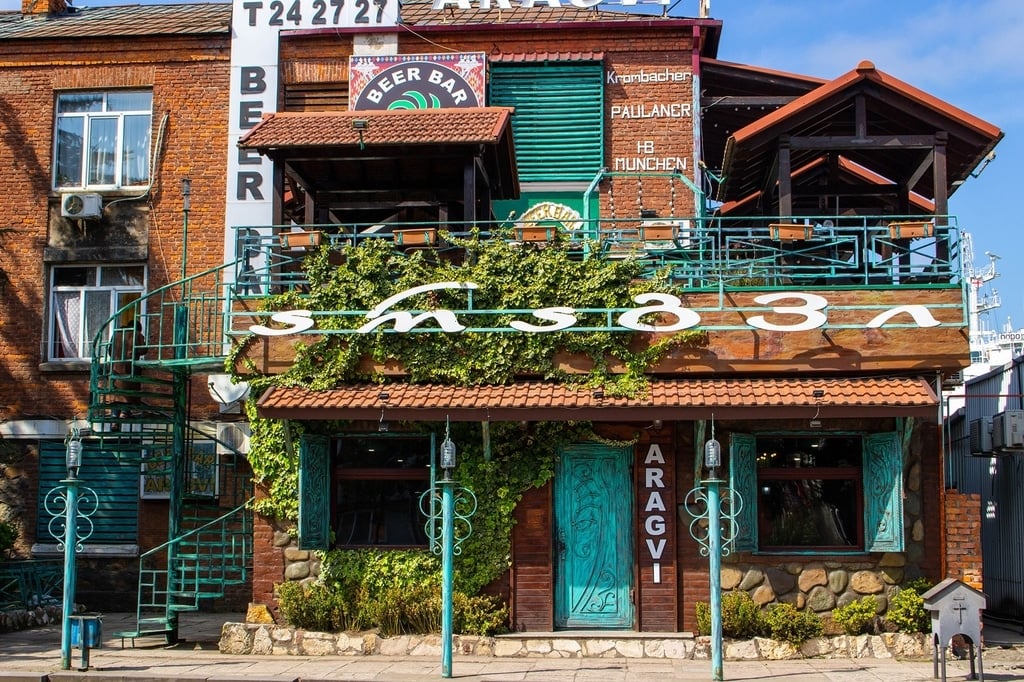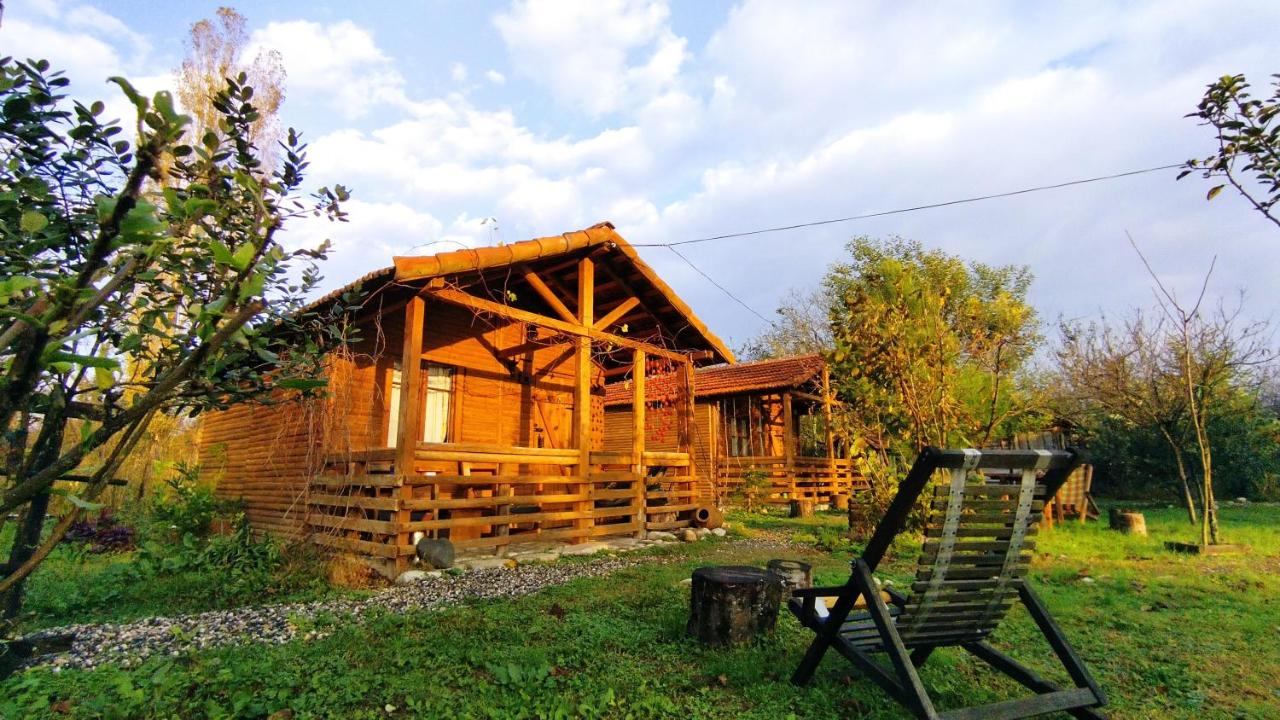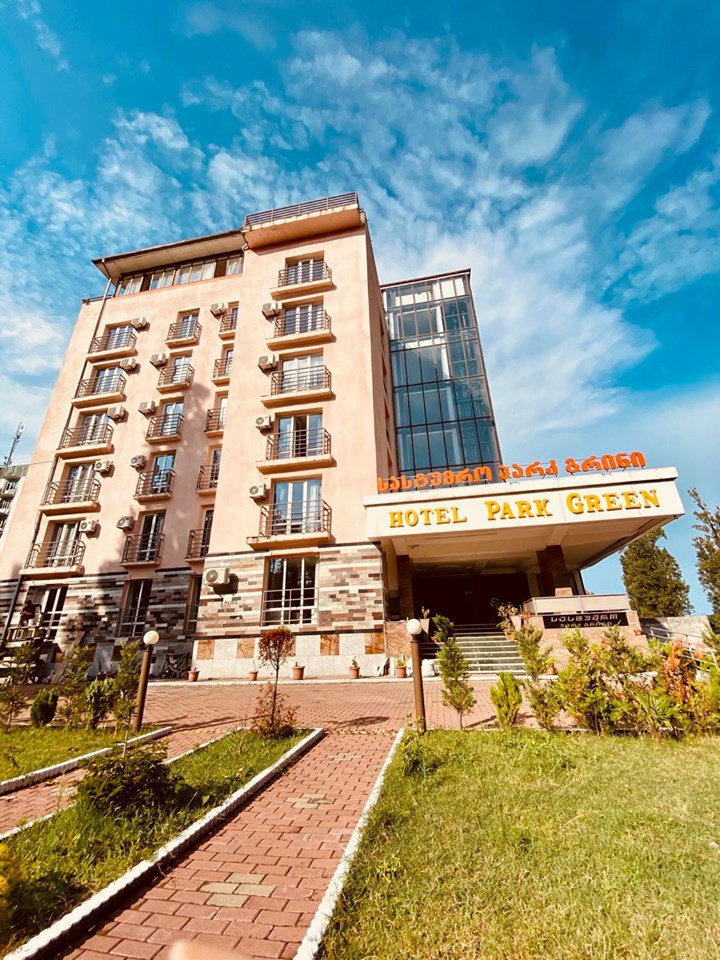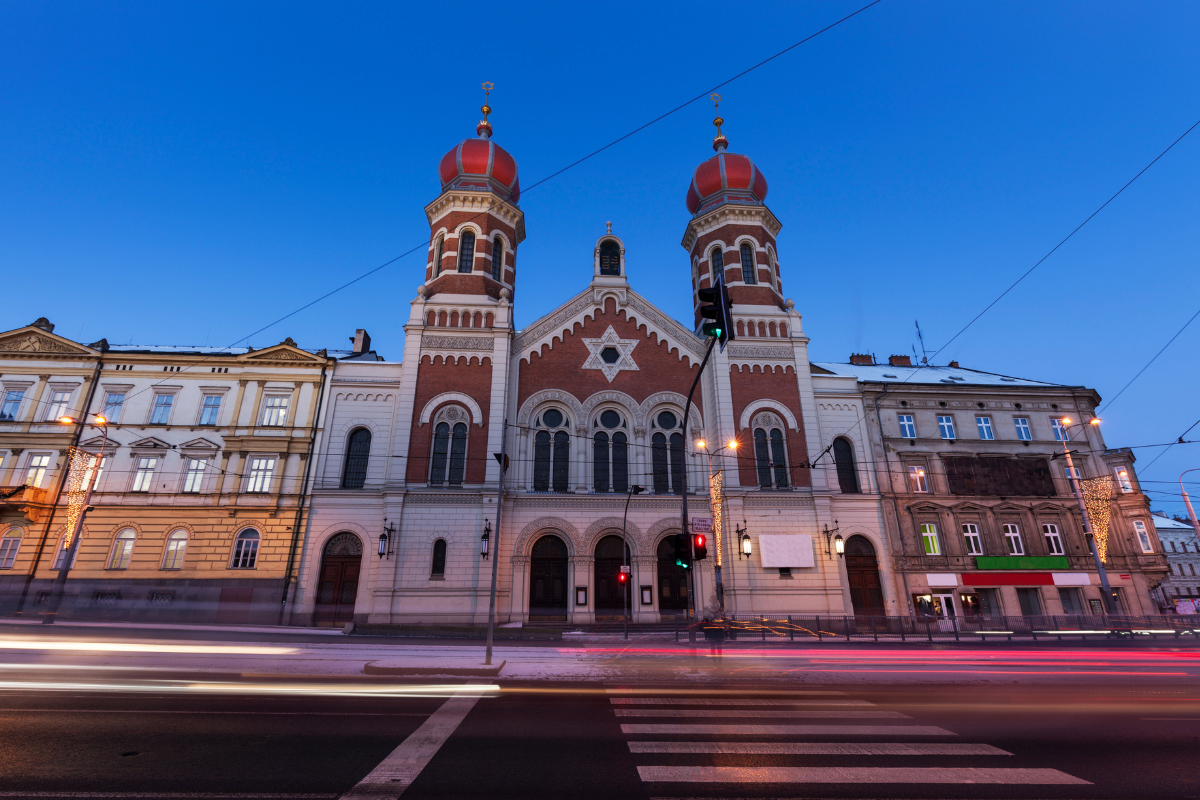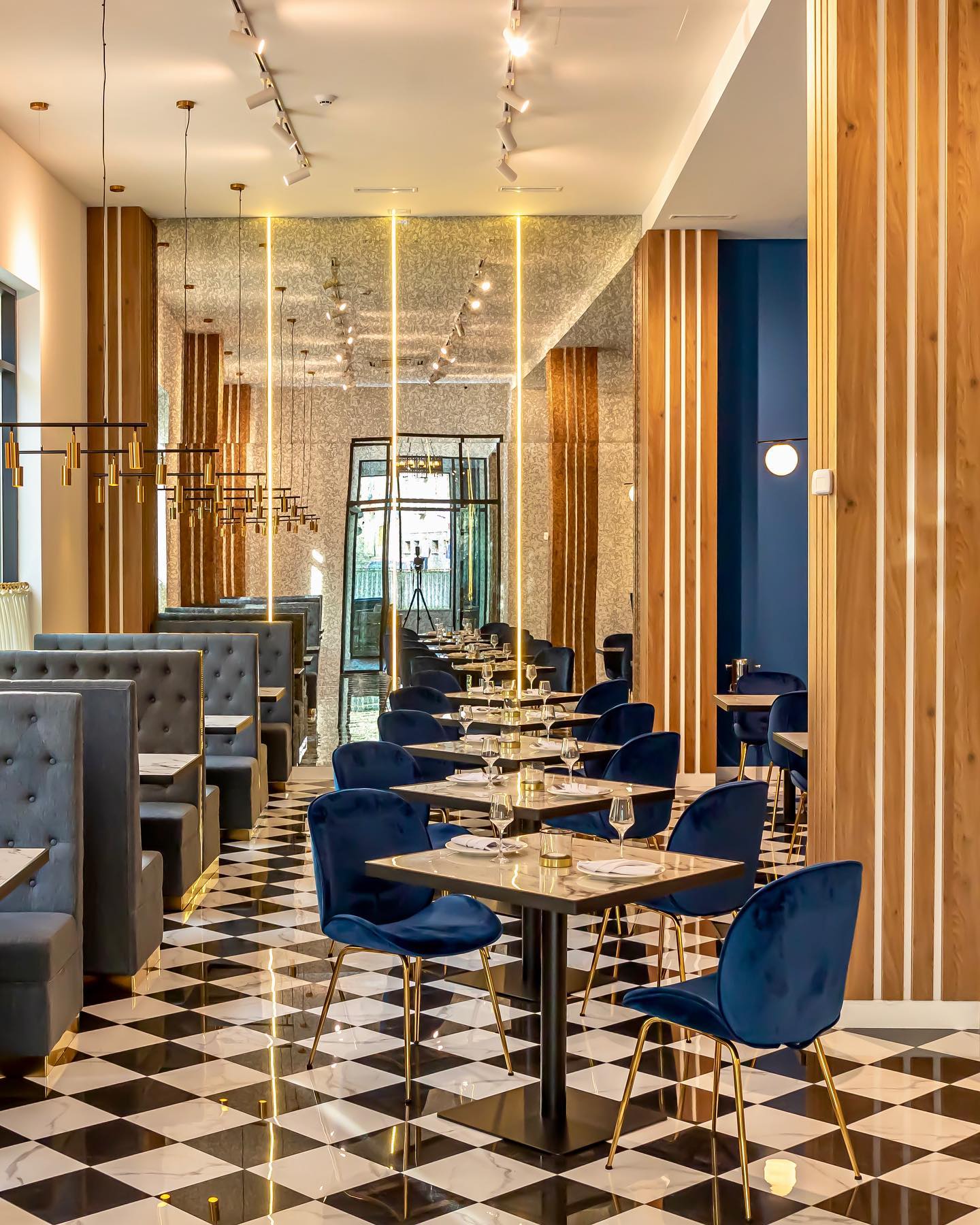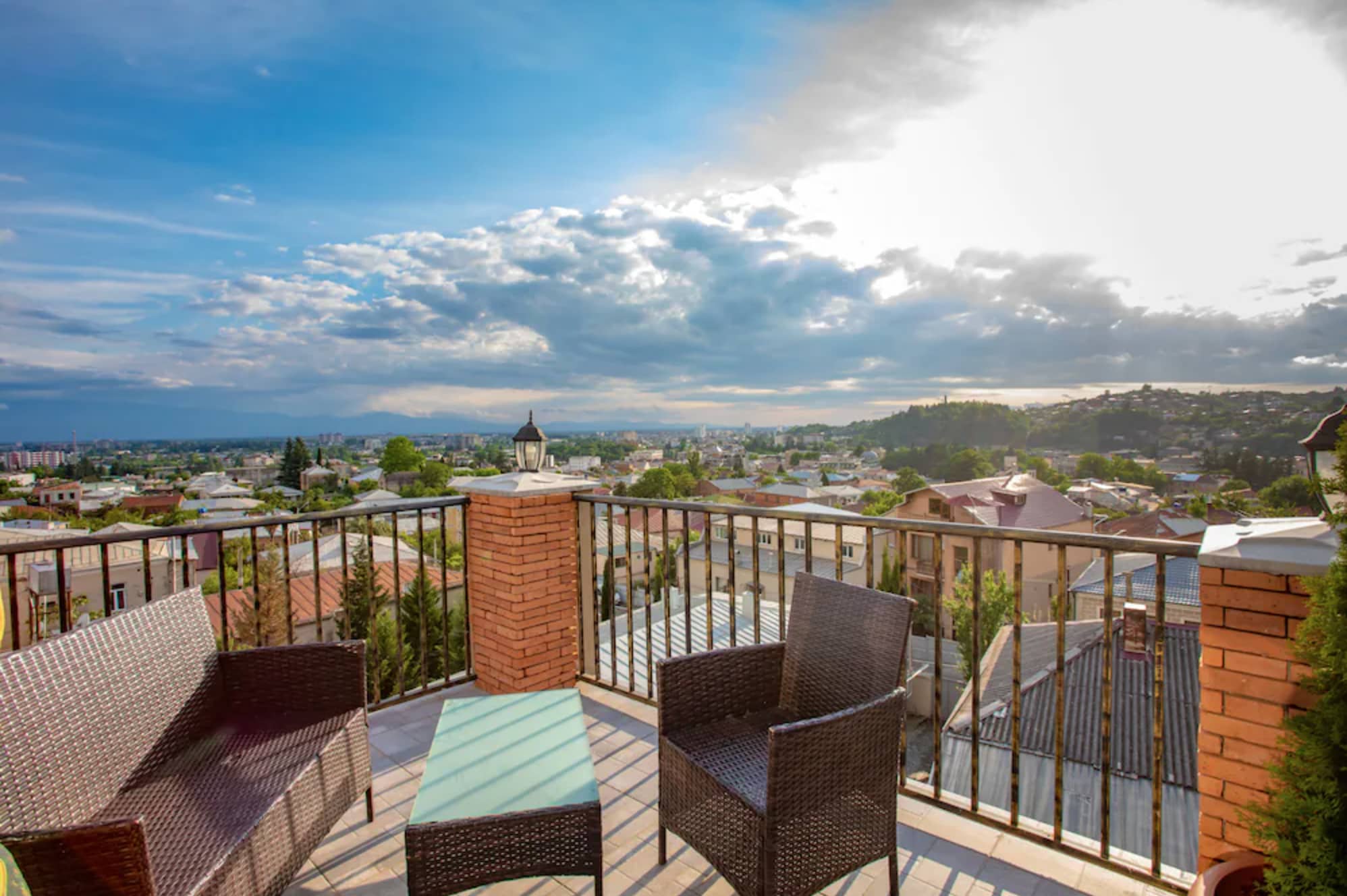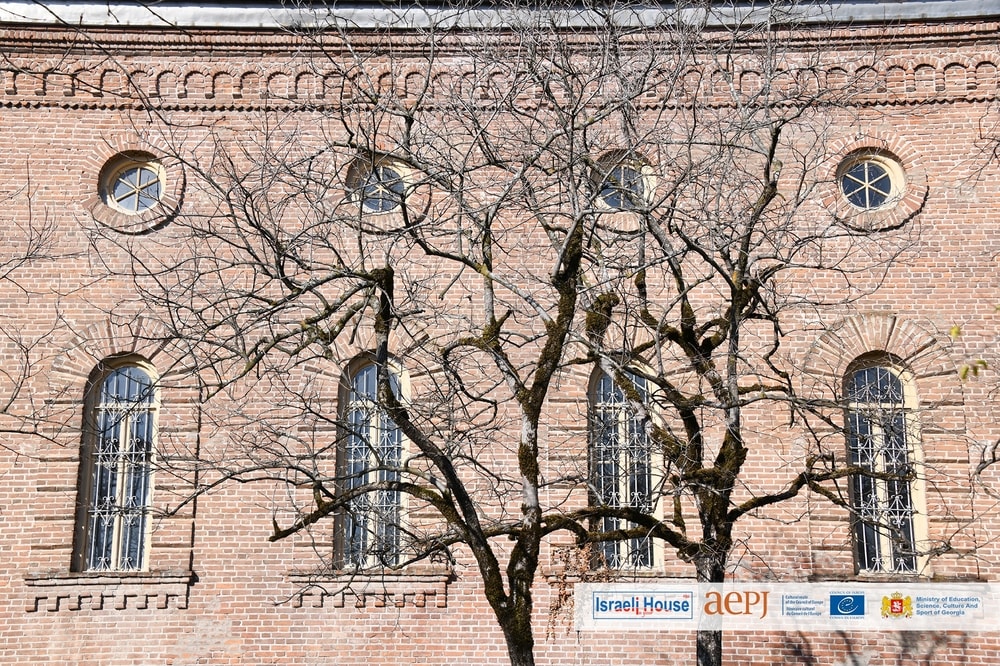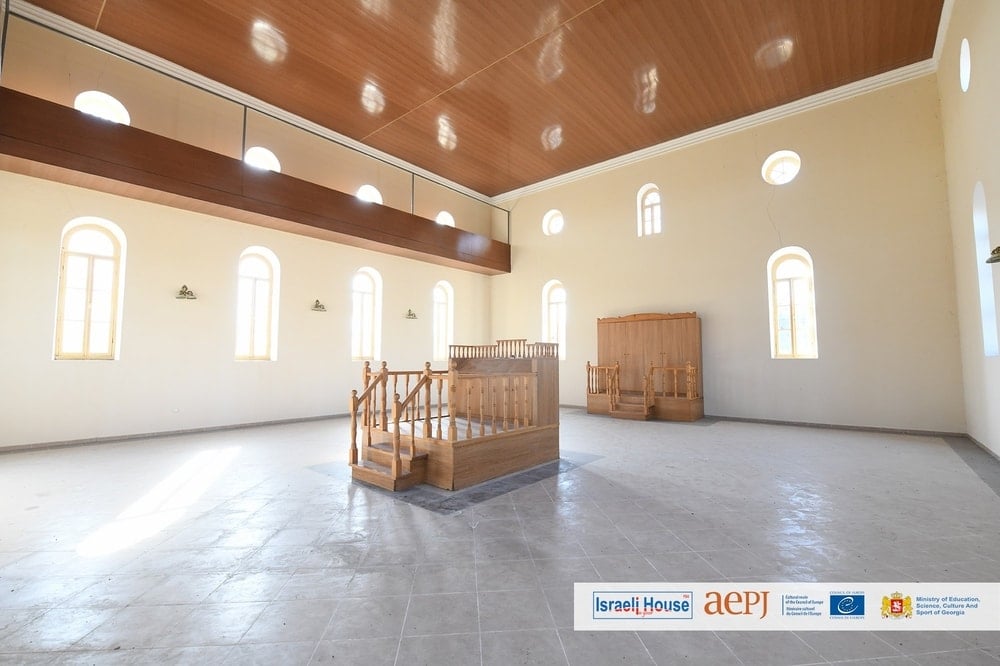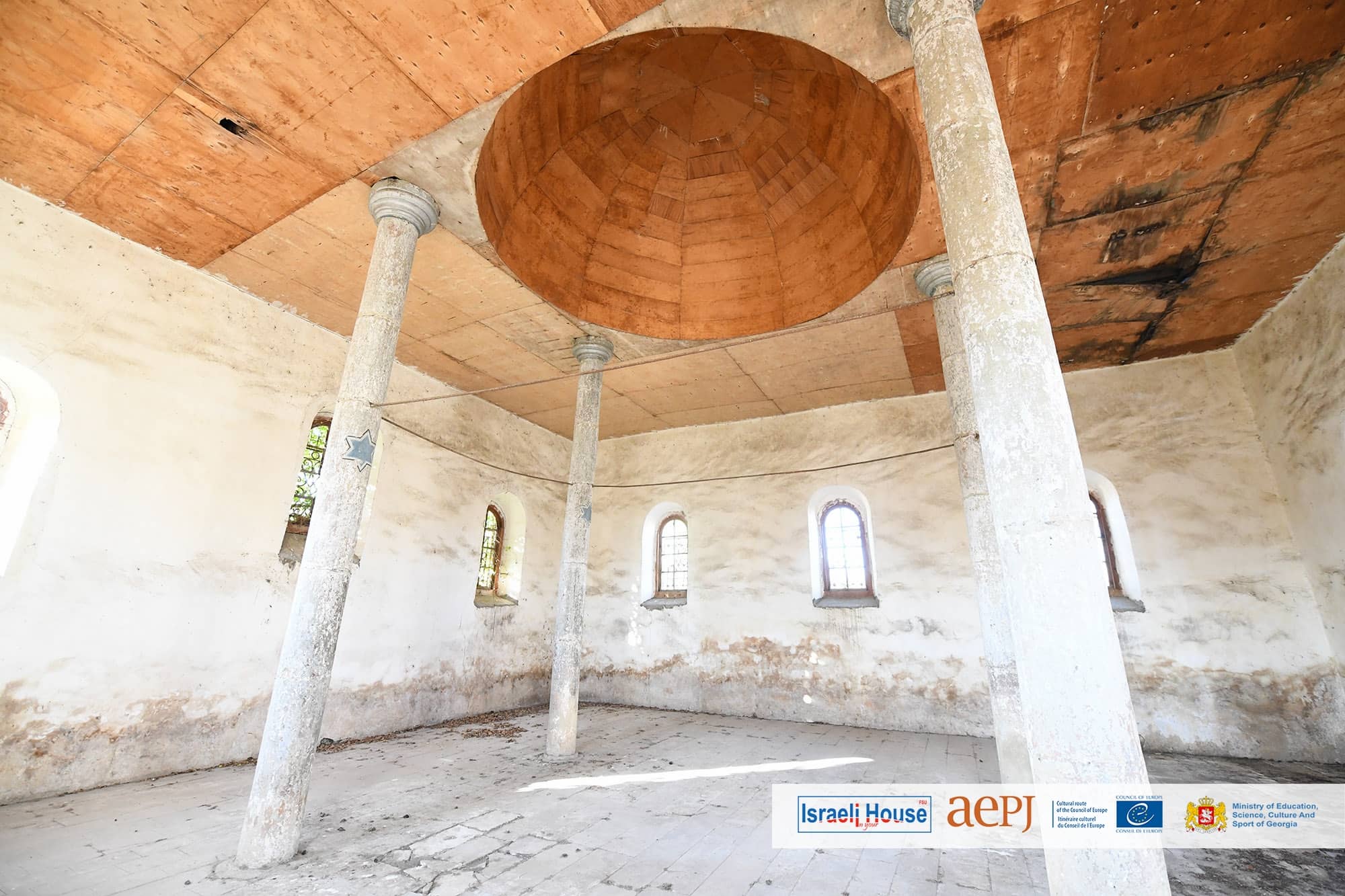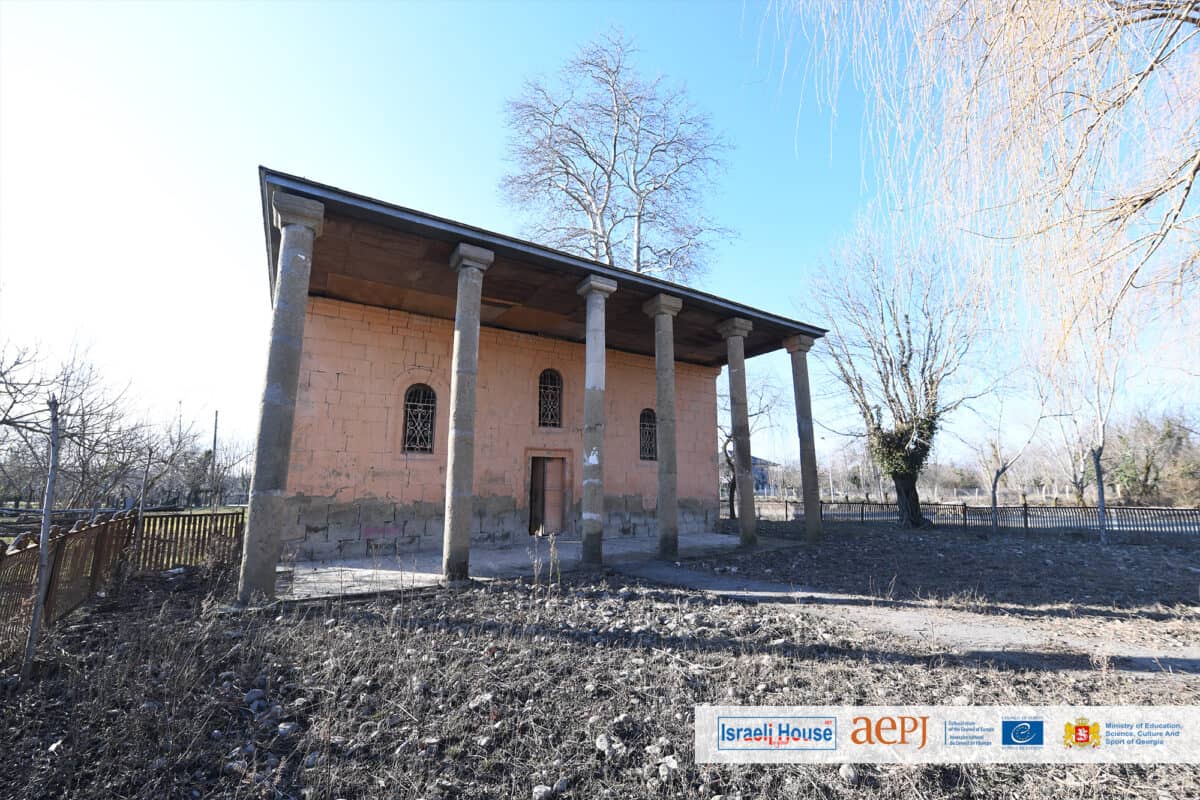Restaurant Aragvi is located near the city center, where you can taste traditional Georgian dishes such as fish, khinkali, khachapuri, pickeled veggies and local wine. The restaurant has received raving reviews for it’s inexpensive meals, cozy atmosphere, and delicous flavors.
Archives: Directory listings
Directory listings
Tinyhouses Genacvale
With garden views, Tinyhouses Genacvale is set in village Bandza, Martvili and has a restaurant, a 24-hour front desk, bar, garden, children’s playground and sun terrace. The chalet features both WiFi and private parking free of charge. There is a fully equipped private bathroom with shower and free toiletries. A continental breakfast is available every morning at Tinyhouses Genacvale. At the accommodations guests are welcome to take advantage of a hot spring bath. Kutaisi is 25 mi from Tinyhouses Genacvale, while Zugdidi is 24 mi from the property. The nearest airport is Kutaisi International, 16 mi from the chalet, and the property offers a paid airport shuttle service.
Hotel Park Green
Offering a terrace and views of the lake, Hotel Park Green is set in Poti. Guests can enjoy the on-site bar. Free private parking is available on site. The rooms are fitted with a flat-screen TV with satellite channels. Certain rooms include a seating area where you can relax. Some rooms have views of the lake, garden or city. Each room is equipped with a private bathroom. For your comfort, you will find bathrobes, slippers and free toiletries. Hotel Park Green features free WiFi throughout the property.
Pilsen Great Synagogue
The Pilsen Great Synagogue
The Pilsen Great Synagogue, built in 1893, sits in Pilsen, where a Jewish presence has existed since the 14th century. The structure was build in a Moorish-Romanesque style and is the third largest synagogue in Europe.
Not long after its construction, the Czech Republish Jewish community was nearly destroyed by the Nazis and the Great Synagogue of Pilsen was used as a storage unit for property cleared out Jewish homes.
On April 10, 2022, the synagogue re-opened. The reopening consisted of a procession a Torah scroll to the inside ark, words from the Culture Minister and heads of the local, Jewish community, a concert inspired by Jewish prayer, and an opening of a permanent exhibition.
A bit over an hour drive from Prague, the Pilsen Great Synagogue is a great place to learn about Jewish heritage in the Czech Republic.
Newport Hotel Kutaisi
Located in the heart of Kutaisi, steps away from the iconic Colchis Fountain, Newport Hotel is a modern 4-star hotel housed in the 19th-century cultural heritage building. Featuring a bar, restaurant, terrace and views of the city, hotel offers ultimate comfort and luxury. Among the facilities of the hotel are a 24-hour front desk and room service, along with free Wi-Fi throughout the property.
Guest rooms are equipped with air conditioning, a flat-screen Smart TV, a fridge, a kettle, a bidet, a hairdryer and a desk. Featuring a private bathroom with a shower and free toiletries, rooms at the hotel also offer a city view. All rooms include a wardrobe. A buffet breakfast is available daily at Newport Hotel Kutaisi.
Hotel Terrace Kutaisi
Hotel Terrace Kutaisi is located in the cozy and pleasant neighborhood in the historical district of Kutaisi city, just 450 metres from the central square. The hotel offers spacious rooms, healthy and delicious breakfast and other services. The main feature of the hotel is a terrace that boasts splendid panoramic views of Kutaisi. This is a family run hotel, just 10 minutes by foot from the Colchis fountain. Hotel Terrace Kutaisi is known for its rooftop bar with great views, as well as great service (with English-speaking staff), delicious breakfast, and clean rooms.
Bandza
Bandza is a village located in the western part of Georgia, in the municipality of Martvili, where in the second half of the 18th century Jewish people started to live. The first sources, where we hear about the place date back to 1639-1640 years. In the 18th century the place used to be one of the leading ones; the lord named Phagava brought Jewish Savdagori’s family to solidify the village economically; after this more Jews started inhabiting the area and they created a community. At the beginning of the 20th century Jews built a synagogue in the Jewish district of Bandza. There is also Jewish cemetery near the synagogue. The synagogue is inactive today but many Jewish people visit it very often.
Sepiashvili Synagogue in Bandza
The Bandza Synagogue was built in the beginning of the 20th century and nowadays the Synagogue is inactive, since most of the Jews had immigrated to Israel. The Synagogue is located in the Jewish Quarter in the village. The Synagogue, which is built in a Neo-Romanesque style, is constructed of stone and it has two floors. The condition of the synagogue is poor, due to lack of care it is receiving.
Synagogue in Sujuna
Synagogue in Sujuna was built in the 60s of the 19th century and is made of stone. The synagogue has a supervisor, who is a local resident and he voluntarily takes care of this area.
Village of Sujuna
Sujuna, a village in Abasha municipality, is located on the bank of the river Abasha. Georgian Jews have been compactly living in Sujuna since the 18th century. During the ruling of David Dadiani Sujuna became one of the centers for trade. The last Jew living in Sujuna passed away in 2000, but Jews still visit the synagogue annually and have a good relationship with the people living in the village. Along with the Synagogue, there is also a graveyard in Sujuna.
